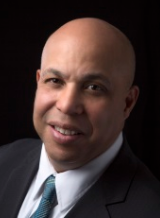Duff: Reopening the Economy at Any Cost?
Monday, April 27, 2020 | 0
One of my favorite commentators, Nassim Taleb, thinks the Covid-19 experience is a white swan, not a black one. (He predicted the event — or one a lot like it — back in 2007. And I am under the impression that it has always been just a matter of time).

Michael C. Duff
It is also not hard to foresee that the economy will be “reopened” too quickly, at least in some quarters. And, equally predictably, comes the policy cry for advance insulation of business interests from tort liability — indeed, advance insulation from all liability.
One could, of course, avoid tort liability by not acting tortiously — indeed, it will not be easy for plaintiffs to establish liability. But, you know how it is: a couple of favorable facts, and you could find yourself before a jury (or a workers’ compensation adjudicator given the encroachment of the Covid presumptions).
And juries and other public factfinders have a nasty habit of seeing things differently from the prepared narratives of the powerful, a habit the founders were counting on. A recent piece in Bloomberg Law is dripping with the disappointment being experienced by the liability-insulation contingent:
"Businesses that reopen during the coronavirus pandemic likely won’t be completely off the hook if workers and customers fall ill, even as the Trump administration looks at ways to ease employers’ liability concerns.
"President Donald Trump and White House economic adviser Larry Kudlow said this week that the administration is exploring protections for business from certain legal risks related to reopening. Kudlow described the idea as a 'guardrail' of sorts, but stopped short of any concrete proposals.
"Business lobbyists say it’s unlikely that the administration could successfully create a broad shield protecting companies from potential personal injury, workplace safety and other litigation. Some are looking instead for a targeted response that would ease some of the risk at the federal level.
"'There is a worry about lawsuits, but I think the idea of some kind of a "safe harbor" for employers from all forms of liability is a bit of a pipe dream,'” Randy Johnson, a corporate lawyer for Seyfarth Shaw in Washington, told Bloomberg Law. “'Various opponents, like Democrats, the plaintiffs’ bar and organized labor, would line up against anything like that.'”
Absent from the Bloomberg piece is any mention of the Constitution, that pesky document instilling in “Democrats, the plaintiffs’ bar and organized labor” the confidence that they could successfully “line up against anything like that.”
I get the sense it would come as a surprise to some of the journalists writing these pieces that federalism is just a bit more complicated than Larry Kudlow announcing from an office that state common law tort and workers’ compensation rights have been suspended. I also find no mention in the piece of the necessary corollary to absolute liability insulation: The victim will bear all the costs of the harm every time.
I think one should be very clear about the equities of the situation before subscribing to such a harsh rule as we encounter the “reopening” that Taleb would undoubtedly classify as yet another white swan event.
Michael C. Duff is associate dean for student programs and external relations, and is professor of law, at the University of Wyoming College of Law. This entry is republished from the Workers' Compensation Law Professors blog, with permission.



Comments